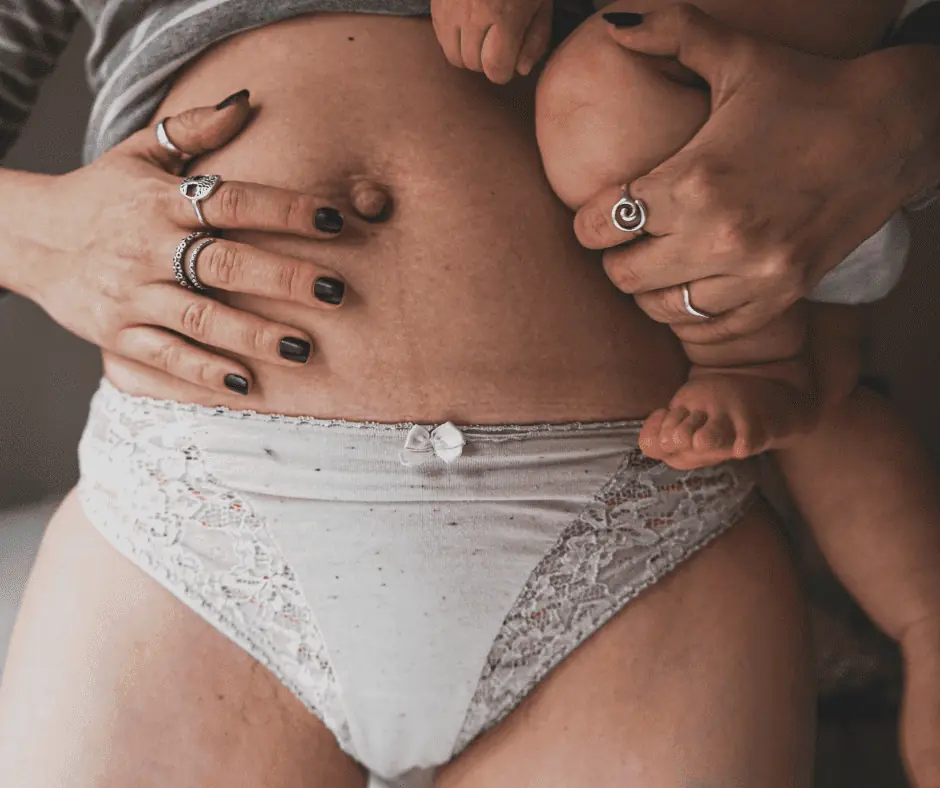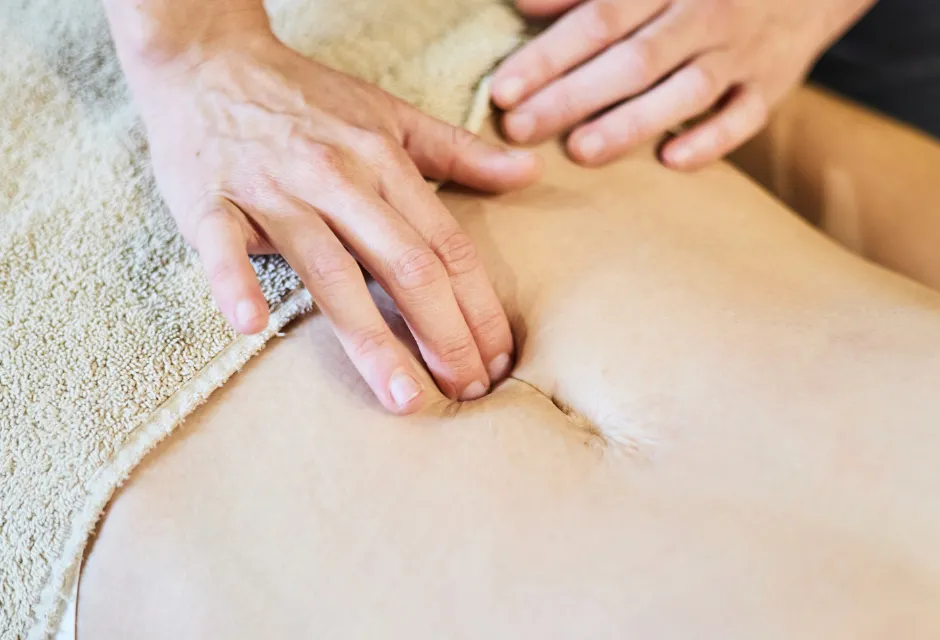From Bump to Baby: The Importance of Postpartum Physical Therapy
This post may contain affiliate links. As an Amazon Associate, I earn from qualifying purchases.
The journey from bump to baby is an amazing one, but it can also be quite challenging. One underutilized tool that can help you postpartum is a physical therapist.
Postpartum physical therapy (PT) can help with everything from restoring your pelvic floor muscles to improving your overall balance and mobility.
In this blog post, we will discuss the importance of postpartum PT and how it can help you recover after giving birth.
What is Postpartum PT?
Postpartum PT is a type of therapy that is specifically designed to help women recover from childbirth. And let’s face it- there are a LOT of major changes going on with your body and life, and some guidance can totally help.
It can help with a wide range of issues, including:
- Pelvic floor dysfunction
- Musculoskeletal pain and/or pelvic pain (muscle tension or tissue strain from birth, nursing, etc.)
- Organ prolapse- such as the bladder, uterus, or rectum
- Scar tissue management
- Fatigue
- Diastasis recti (abdominal separation)
- Incontinence (urine leakage)
In addition, postpartum physical therapy can help to improve sexual function and increase the chance of a successful future pregnancy (I know, if you have a new baby you don’t even want to think about those things, but someday it’ll feel important!).
How Postpartum PT Can Immensely Help a New Mom

One of the most important aspects of postpartum physical therapy is education.
Women who receive postpartum PT will be taught how to optimally care for their bodies during pregnancy and postpartum, how to prevent future problems, and how to manage existing problems. By educating women about their bodies, postpartum clinicians can help them have a healthy and successful postpartum period.
Postpartum PT can be an invaluable resource for women who are struggling to adjust to motherhood. Licensed physical therapists can help women heal from the physical trauma of childbirth, regain their strength and energy levels, and improve their overall well-being.
The Benefits of Postpartum Physical Therapy
Postpartum physical therapy can help new mothers heal from the challenges of childbirth and adjust to the demands of motherhood. Let’s review some of the top benefits:
- Restoring strength and flexibility, primarily of the hips, pelvic floor, core, and back muscles after 9 months of pregnancy
- Manage or reduce the risk of pelvic floor problems, pelvic pain, back pain, diastasis recti, organ prolapse, and other common issues
- Help new mothers regain their energy and stamina, setting them up for a healthy postpartum recovery
- Education in optimal positioning for sleep, nursing your baby, and other positions you’ll be spending a lot of time in
- Learn pain management strategies to cope with the aches and pains of early motherhood
- If you had a c-section or vaginal tear, scar tissue management can reduce scars and adhesions
- Get guidance on how to safely return to exercise and other physical activity with adequate core and pelvic floor control
- How to safely return to core exercises and heal diastasis recti (abdominal separation that is VERY common at the end of pregnancy and postpartum)
- Improve sexual function (when ready)
- Stress management techniques to help you feel more balanced in your new transition to caring for baby
Need some general guidance for navigating life with a new baby? See our full postpartum checklist here!
Do I Need Physical Therapy Postpartum?
Every new mom (or seasoned mom still dealing with postpartum effects) can benefit from postpartum physical therapy. As a mom and PT myself, I’m a bit biased- but it’s true!
As new moms, many women just suffer through their recovery for more weeks/months than they shoulder. A little extra support can make all the difference in starting to feel “normal” again after having a baby (whatever normal means to you).
Additionally, there are many signs that may indicate that postpartum PT is necessary.
- Persistent pain in the perineum, pelvic floor, pelvic girdle, or abdominal muscles
- Other types of pain, particularly back or neck pain
- Pain with sex or other foreplay
- Incontinence or constipation
- Diastasis recti (separation of the abdominal muscles)
- Scar tissue development (adhesions) and discomfort
- Feeling off balance, low energy, or fatigued with daily activities
If you are experiencing any of these issues, postpartum physical therapy may be right for you. Don’t hesitate to reach out to a postpartum clinician to discuss your individual needs and how postpartum PT can help you recover from childbirth.
What to Expect from Physical Therapy Postpartum

A licensed PT will help you design a personalized program to restore the body (and pelvic floor) to its pre-pregnancy state, improve postural alignment, and relieve common postpartum discomforts such as back pain and incontinence.
PT providers who specialize in postpartum care can provide a comprehensive evaluation to identify any areas of concern and develop an individualized treatment plan.
After an initial first evaluation, treatment may include:
- Exercises to improve strength and endurance of the core muscles and pelvic floor
- Stretches to release any tight muscles and relieve discomfort
- Personalized guidance and exercises (with progression) for regaining the strength of the abdominal muscles- particularly if diastasis recti is present
- Manual therapies to address stiffness, scarring, and limited mobility (of the back, hips, pelvis, etc.)
- Education on optimal body mechanics (for nursing, carrying a baby, etc.) to reduce the risk of back pain or a progression of diastasis recti
- Encouraging adequate self-care for both physical and mental health
- Guidance in self-management of pain and other dysfunctions- while also safely returning to your daily activities when appropriate
Postpartum PT can help new mothers feel in control of their bodies, particularly their pelvic floor, and feel their best as they adjust to life with a new baby.
Does Insurance Cover Postpartum PT?
Insurance coverage for postpartum PT varies widely, depending on the state in which you live and the insurance company you are with.
At best, some insurance companies may offer a few in-network women’s health providers. However, typically this type of PT is considered “out of network.” You will have to check with your specific insurance plan to see if you would owe a deductible, have a co-pay, etc.
Alternatively, you can also find a specialist that offers cash-based payments. When compared to co-pays and deductibles, it can be surprisingly affordable. And, most importantly, worth every penny.
NOTE: In most cases, you do not need a referral to start seeing a PT provider!
How to Find a Postpartum PT

A qualified postpartum physical therapist can help you heal and recover from the many changes that occur during pregnancy and childbirth. So where do you find a provider that you can trust?
Here are some tips on finding a qualified postpartum physical therapist in your area:
- Firstly, check with your OBGYN or midwife to see if they have any recommendations. They may know of someone who is qualified and who they would trust to work with you.
- Secondly, ask other moms in your area if they have anyone they would recommend. Chances are, if they had a good experience, they would be more than happy to share the name of their postpartum physical therapist with you.
- Finally, you can always do a search online. There are many websites that allow you to search for postpartum physical therapists in your area. Just make sure to read reviews before making your final decision.
If you follow these tips, you should be able to find a qualified postpartum physical therapist in your area who can help you heal and recover after childbirth.
Get the Care You Need During a Major Life Change
Having a baby is a major life change- both physically and emotionally.
Your body goes through so many changes during pregnancy and childbirth, and it can be difficult to adjust to your new life as a mother. Postpartum PT can help you heal from the physical changes that occur during pregnancy and childbirth, and also provide guidance on how to safely return to your daily activities.
If you are experiencing any pain or discomfort after giving birth, don’t hesitate to reach out to a qualified postpartum physical therapist in your area. They can help you get the care and treatment you need during this major life change.
Note: I am not specialized in women’s health physical therapy myself. However, I am a physical therapist, healthy habits coach, and mom that’s been there. If you have questions or want to discuss a concern, you can ALWAYS email me at [email protected]. I’m happy to give you recommendations or even work with you if it’s a good fit. Thanks for reading!
Have you worked with a physical therapist before? Do you know of one in your area that you’d like to recommend? Let me know!







